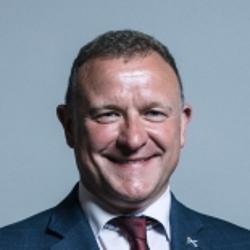Immigrants: Sleeping Rough
(asked on 18th November 2020) - View SourceQuestion to the Home Office:
To ask the Secretary of State for the Home Department, what assessment her Department has made of the effect of No Recourse to Public Funds conditions on the number of people sleeping rough since the start of the covid-19 outbreak.
The Home Office does not hold data on the number of people rough sleeping in the UK who are subject to no recourse to public funds (NRPF).
The Government remains committed to protecting vulnerable people and has acted decisively to ensure that we support everyone through this pandemic. Many of the wide-ranging COVID-19 measures the Government has put in place, such as the Coronavirus Job Retention Scheme have been made available to migrants with NRPF. We have published guidance and support for migrants affected by COVID-19 at
https://www.gov.uk/guidance/coronavirus-covid-19-get-support-if-youre-a-migrant-living-in-the-uk.
A discretionary fund akin to the Test and Trace Support Payment scheme, in the form of a £500 discretionary payment, paid by local?authorities is available to those with NRPF, provided they meet the criteria set by the local authority for discretionary payments in their area.
Local authorities may also provide basic safety net support, regardless of immigration status, if it is established that there is a genuine care need that does not arise solely from destitution, for example, where there are community care needs, migrants with serious health problems or family cases where the wellbeing of a child is in question.
The Government has provided councils with £6.4 billion to support their communities through this pandemic, which includes their work to support rough sleepers. This includes £4.6 billion in un-ringfenced funding, £1.1 billion from the Infection Control Fund, £300 million to support Test and Trace as well as funding allocated to councils from the new Local Alert Level system and a number of grants to support communities and vulnerable people.
We are spending over £700m on tackling homelessness and rough sleeping this year. This is on top of the unprecedented resources already committed to help councils support their communities through the pandemic, which includes their work to support children. This funding includes over £4.6 billion in un-ringfenced grants, £485m Contain Outbreak Management Fund and additional funding for authorities to support care homes, high streets and the most vulnerable in their communities.
During the Covid-19 pandemic, the Government has worked closely with local authorities and the sector to offer vulnerable people safe accommodation and support. That work is ongoing and by September over 29,000 people had been successfully supported, with over 10,000 still in emergency accommodation and nearly 19,000 provided with settled accommodation or move on support.
NRPF is applied to migrants who are expected to maintain and accommodate themselves in the UK, without recourse to public funds. However, individuals whose basis of stay in the UK is based on their family life or human rights can apply to have the NRPF condition lifted by making a ‘change of conditions’ application if there are exceptional circumstances related to financial circumstances, to avoid destitution and rough sleeping.
To avoid destitution and sleeping rough, those without immigration status should regularise their stay or leave the UK. There is support available to do this through the Voluntary Returns Service.
The Rough Sleeping Support Service (RSSS) offers an enhanced service for Local Authorities and registered charities to establish whether a rough sleeper has access to public funds. Part of this service includes the RSSS contacting casework teams (where there is an open application) to request that the case is prioritised. The Home Office remains committed to working with Local Authorities in their work with non-UK national rough sleepers.

